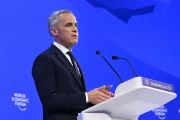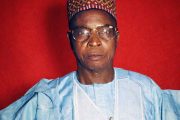Since Prof Absalom Mutere, the late veteran media trainer, made the startling disclosure about how so many African journalists have neither heard and could thus not have applied the concepts of ‘Afro-centricity’ and ‘multiculturalism’, any book on multiculturalism and conflict reporting anywhere on the continent must command attention, if not awe. It is in that context that two recent books published in Nigeria must be considered strategic texts in relation to the prospects of remaking the nation. The one that came much earlier is Multiculturalism, Diversity and Reporting Conflict in Nigeria, edited by Prof Umaru Pate of Bayero University, Kano and Prof Lai Oso of the Lagos State University, (LASU). The more recent one is Watchdog or Captured Media? Media and Democracy in Nigeria Since 1999. It is edited by Prof Ayo Olukotun, about the last of that generation still academically active in the case of Political Science.
Both books derive from concern with the role of the media in a world in which informationalisation is driving much of reality, a process which has attracted hair raising claims when it comes to the media-conflict dynamics in general and multiculturalism-conflict reporting in particular. Most readers might recall Jean Baudrillard’s 1991 intervention in the essay “The Gulf War Did Not Take Place”. On the surface, it looked crazy to push out such a title suggesting that the war did not take place. But, was there any war? How could there have been war which no one saw much beyond what ‘CNN’ permitted and which Baudrillard held to have been a well crafted version of the whole thing in which the bombs were so intelligent and smart that they could select who to be killed and who to spare. In that piece, Baudrillard, therefore, succeeded in strengthening the idea that we are now effectively in the age of hyper reality or when the real and unreal have merged into an indistinguishable pair, leaving images to be definitive element.
 That is what has put the media at the centre of conflict and peacebuilding because it determines how wars are fought and who emerges the winner, all through narratives that tells us who the bad guy is and who is then the good one. In other words, the days of innocence are gone. The media has become a combatant itself, deployed in the same manner that troops are deployed. A crack professor of International Security at the University of Sidney has given this development the name of Virtuous War, the high point of the much talked about Revolution in Military Affairs, (RMA). For his Swedish counterpart, the preferred name is ‘New War Journalism’, no thanks to the revolution in information and communication technology!
That is what has put the media at the centre of conflict and peacebuilding because it determines how wars are fought and who emerges the winner, all through narratives that tells us who the bad guy is and who is then the good one. In other words, the days of innocence are gone. The media has become a combatant itself, deployed in the same manner that troops are deployed. A crack professor of International Security at the University of Sidney has given this development the name of Virtuous War, the high point of the much talked about Revolution in Military Affairs, (RMA). For his Swedish counterpart, the preferred name is ‘New War Journalism’, no thanks to the revolution in information and communication technology!
All of these make Multiculturalism, Diversity and Reporting Conflict in Nigeria particularly welcome because it connects academia in Nigeria to the global grid as far as the intense probing of the changing place of the media in conflict in a world of overlapping but contradictory boundaries and intersections is concerned. Of course, the concern of this book is limited to Nigeria. The 25 chapter book makes it clear from the onset how it sets out to, in its own words, “explore the relevant conceptual, theoretical and practical issues involved in media representation of conflict within the context of the country’s multiculturalism and diversity”. Each chapter addresses a specific dimension of this huge theme, stretching from the overview of multiculturalism and conflict reporting in the African context; the survey of the foundationalist perspectives on this interface, (why Prof Oso left out the ‘dissidents’ in the expertly handled survey is the charge some angry readers cannot wait to haul at him as soon as possible); the interesting structure-agency discussion and the objectivity variable in the media-pluralism nexus.
Others are the empirical cases such as the herders-farmers conflict; reporting of oil-induced conflict in the Niger Delta; gender sensitivity in the coverage of conflict situations which was extended to IDP women in the Nigerian media. Chapters 14 – 19 and 22 – 23 might be said to be extending the methodological as well as thematic radius in media-conflict scholarship in Nigeria in that they did not just take on the various platforms of popular culture as peacebuilding sites, they also deployed discourse analysis. It has not been a common practice in media scholarship around here due to the strangeness of the conception of news as discourse to many media scholars still hooked to objectivity thesis and its ‘news as absurdity’ paradigm.
In the introductory chapter preceding these chapters, the editors had left no one in doubt that differentiation in expectations, behaviours and perceptions between and among groups in an extraordinarily heterogeneous Nigeria could be inherently reproductive of conflict if the media is not conflict sensitive compliant. Echoing notable voices in media and diversity scholarship in contemporary Nigeria, they identify a number of weaknesses on the part of the media in this regard. They range from selectivity to decontextualised reporting; from generalised statements to the habit of interpreting individual positions to be standpoint of collectives; reliance on rumour as news; inflammatory and sensational language; demonization; organised ‘silence’; ill-informed opinions by columnists/writers on issues that affect certain people in the country; shallow and episodic reporting, amongst other such charges.
It was the concern with this trend that led to introduction of media and diversity into teaching programmes in Mass Communication, Peace and Conflict Studies and Development Practice in Nigerian institutions of higher learning. But with that also came the realisation that whatever literature are available have external context. In other words, there are no locally produced knowledge to sustain the courses and hence the collaboration with the DFID’s Nigeria Stability and Reconciliation Programme, (NSRP) to publish the text.

Prof Umaru Pate, one of the editors

Book project supporter through its Nigeria Stability and Reconciliation Programme, (NSRP)
Multiculturalism, Diversity and Reporting Conflict in Nigeria is certainly a good fit finishing, excellent font size, very clear and inviting and unconstrained by ‘jargons of authenticity’ as they say. The progression is superb and it could be said that no one is likely to be disappointed in buying a copy, irrespective of the buyer’s ideological or scholarly inclinations. This is more so that the book is actually an international conversation on media and conflict in contemporary Nigeria featuring established voices thereto, (Pate, Olawale Albert, Owens-Ibie, Oso, etc); the perspective of the policy mill, (Bakut T. Bakut, Zebulon Takwa, Lauratu Abdulsalam, Mohammed Haruna); emerging scholarly voices, (Jide Jimoh, Tunde Akanni, Mohammed Musa); doctoral candidates of Nigerian identity in the subject-area studying in foreign universities. Finally, the book shows us an image of the Mass Communication training centres in Nigeria at the moment and the traditions of scholarship discernable in each case, with particular reference to media and conflict in Nigeria. From the book, we can see ABU, Zaria; Bayero University, Kano; the University of Jos; Lagos State University; the University of Maiduguri, UNN and a few of the new comers.
In 2003, Prof Ervand Abrahamian published an article in Third World Quarterly titled “The US Media, Huntington and September 11”. In that article, there is a sentence that would normally attract the attention of a graduate student of identity and conflict. The sentence runs as follows: “Obviously religion cannot explain why Iran favours Russia against Chechnya, Armenia against Azerbaijan, and India against Pakistan”. His was part of the attacks on Samuel Huntington’s controversial book, The Clash of Civilisation. In Nigeria, it is a common position that heterogeneity or multiculturalism is not a problem because it has helped the ordinary people to survive better than if Nigeria were like China – one dominant ethnic stock.
The question these two instances raise for the book under review is the sustainability of implicating multiculturalism in crisis of conflict reporting without any other variable in between. Scholars of the ‘linguistic turn’ would argue that something is missing and they would name what it is as language use and what that leads to. The argument is that the media is powerful in all these because it is the most concentrated site for language use. And language use is about power because every language use is either an attack on the object of which it speaks or an endorsement of it. Media materials are all, therefore, discourses, including news and aim at power since the political relationship is the most important in any society. Some scholars such as Eric Grillo are insisting on exceptions where discourse has an empowering logic, to use his own words. That exception would not apply to the balance of class, generational, gender, regional and ecological forces in Nigeria today.
If no exception can be granted, then the point is that media framing of conflict in Nigeria has very little to do with multiculturalism but everything to do with instrumentalisation of language by those who can in the context of elite struggle for power. It might on the surface be driven by identity frames – Hausa/Fulani, Yoruba, minority, majority, Islam versus Christianity, etc even when the essence is language serving a purpose of control or compellence of one fraction of the elite by another. This is what should become clear from any serious Critical Discourse Analysis, (CDA) of any systematically selected media texts.
Why might this distinction be important? It is in the policy implication. It means reducing concentration on multiculturalism and even the media itself and, instead, paying more attention to issues such as leadership training institutions/elite universities, for example; leadership recruitment; better organised political parties even if they are right wing or whatever; better managed elections and qualitative governance. This is what would reduce the intra-class bickerings which are what drives the desperate, inflammatory headlines and inter-group enemy images we are attributing to multiculturalism and diversity. Attention on the media will achieve little in solving this problem because the media establishment itself can do nothing substantial about what pushes it into overdrive in matters of reporting conflicts in the context of diversity. This is an angle the editors might need to reflect upon when they come to the next edition. Meanwhile, kudos to them for bringing up an agenda setting text in the Nigerian context!




























